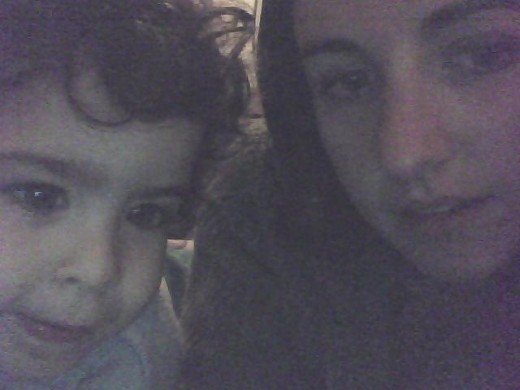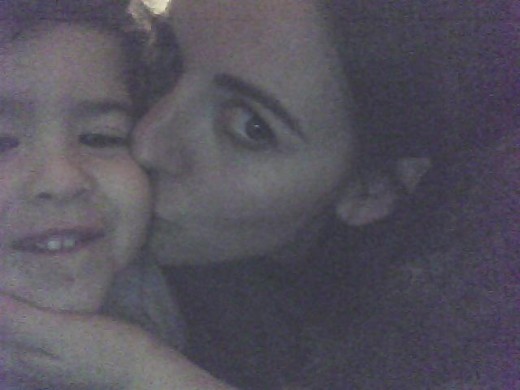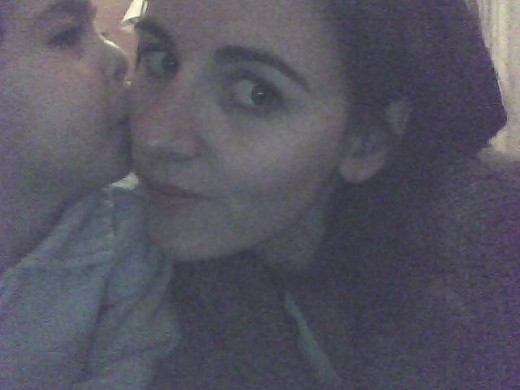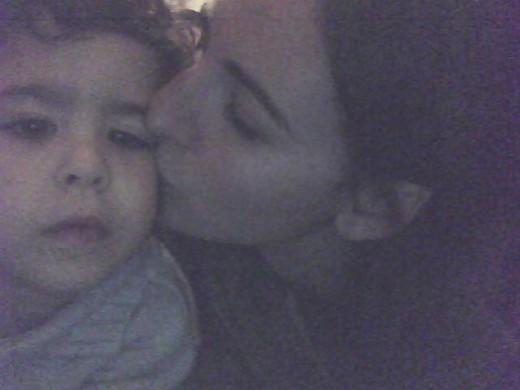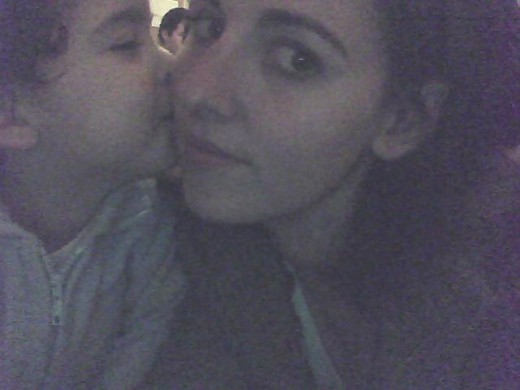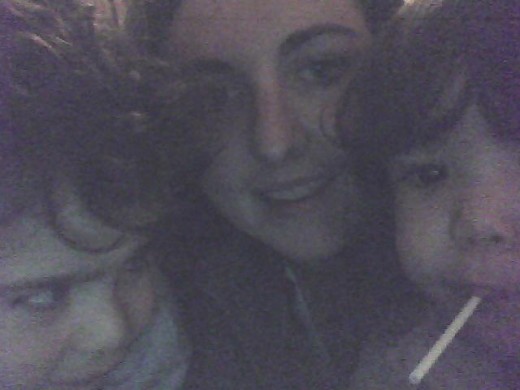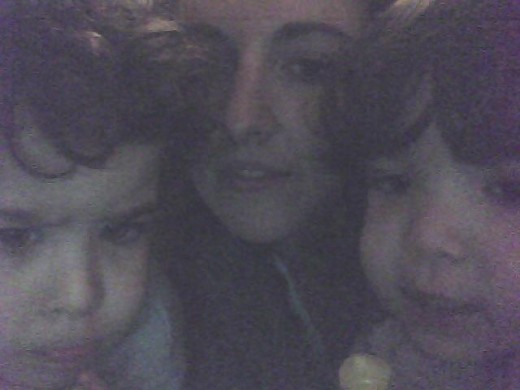- HubPages»
- Family and Parenting»
- Parenting Skills, Styles & Advice»
- Parenting Advice & Tips
How to communicate and understand your child - 2 to 4 years old
The importance of communication
It is obvious that communication is of the utmost importance. Through it we can understand others and vice versa. If you have a child it is even more important, it is through communication that you will show your child the world, what your child can expect of it and what is expected of her. But this is easier said than done, because you are not quite aware how much of what is being said, is being understood.
A child with two, three or four years talks and expresses herself and answers you (sometimes... if the child feels like it), but is the child really understanding? If so, why isn't she doing what you ask? Why is she throwing a tantrum? Beating on a sister? And so on and so forth....
What you need to understand is that all of the above is information for you, is the answer to the question you asked, it's something of utmost importance to the child. You just don't understand it.
You see, the thing is that children, of this age, speak, but they are unable to communicate properly a lot of things, for lack of words, for lack of understanding of what's going around them and also of what they are feeling. When they find that the message is not getting across, they do all sorts of things that leave you a nervous wreck and that you simply can't understand. So, what to do?
Every one with children knows how difficult it is sometimes to understand them... To communicate with them, to get simple messages across. In fact it can be quite an ordeal. The problem is you are in different brain waves. It is your job as a parent to synch into their brain waves. And here is where it gets tricky...
It's been quite long since we were children and we have forgoten a lot about childhood, what we felt and why, how small things seemed so important and scary. Most of us spent so many years just talking to adults, having plain and simple conversations, that the other party totally understood, many times no need to even finish the sentence, that now it seems unexplicable that that little being isn't understanding the simple instruction you are giving, moreover is doing the exact opposite non-stop and probably will end up throwing a tantrum.
Now, what is this all about and how can you overcome it?










Basic principles
You need to start from the following premise:
The child has a point, we are just not getting it....
Then you need to exercise yourself trying to see things from their point of view. In time you will start guessing quicker what is upsetting them, but it will take a while and again easier said than done, especially when you're tired, just came home from work, trying to cook dinner and the kid is having a fit of rage or acting up and you think: I have no time or energy for this!
There are many ways to handle this, most of them have a lot to do with calm, so take your time. To communicate with children you need to take your time, you need to be calm, you need to look at them, you need to stop what you are doing.
When I'm in a hurry and I don't even stop when I'm answering my children, probably I don't understand exactly what they want from me or what they are actually saying, so they get frustated. When they get frustated, we all know what's coming...
Obviously there are times when you really can't attend to them and obviously they also need to understand that they have to wait... otherwise we would be raising spoiled brats that thought they were the center of the universe... But even then, I usually stop what I'm doing, look at them and tell them: "Please, you have to wait a little while, because mommy needs to finish this, once I'm done, I will talk to you, okay?" That way the child knows that she's not being ignored or overlooked, she just needs to wait.
Another important principle is that things that are unimportant to us can mean the world to them. We have been trained to find certain things important, like work, money, providing for our family, laundry, cooking to feed one's family. Well, children could not care less. But they find other things terribly important. We have to stop and think what can those things be and why? That way we will start understanding them.
My three year old daughter once told me she had a boyfriend and she was going to marry him. I laughed, obviously, as I found very funny that at that age she thought of those things. A few weeks after I asked her about her boyfriend and she told me he had "married" other girls ( at that age... boy, are things fast nowadays, or what).
Anyway, I told her not to worry, as there were many boys in the world and she would meet a proper one. I tried not to disregard the importance she gave to the subject, but apparently I was totally off.
My husband told me she was throwing tantrums every day, when he dropped her off at day care and no one understood why. So, finally, I came to the conclusion that it was the boyfriend matter, that was consuming her.
You see, what we all found so funny, having a boyfriend at three years old, and disregarded as a silly thing, it actually meant the whole world to her, she had her heart broken and she acted up every morning, because when she arrived at day care, she saw her "boyfriend" next to another girl. Silly to us, everything to them...
But it actually can be anything, a toy, something that they don't understand, a fact, an idea, doing something to the brother or sister and not to them (how come did he/she had this and not me?).
One day my boy came home and asked me if our house was Andrew's house. That threw me off for a while. Apparently he was very upset, because one of his friends had told me that our house was his house and this was confusing him and he was afraid we might have to leave, so his friend would move in. Now, try to explain to a three years old child that this makes no sense.

Strategies
Considering what I explained above, I developed a number of strategies to try to understand them and to make sure they understand me. Different occasions mean different strategies. it depends on the mood of the day, I guess, and, obviously, what works with one, may not work with the other.
- Always make eye contact when talking to them;
- If the situation demands it (something a bit more serious) stop what you are doing, even if it is for two minutes to sit down with them (sitting them on our laps it's also good) and really listen to them, ask what's wrong and give them a proper come back on the subject (those two minutes will probably save half an hour of tantrum or crying);
- Even if you don't have a lot of time in your hands, try to take some time off each day to ask them about their day, what they did, what they learned, what they drew and ask them to show some new things to you;
- When they come home from day care they need a little while with mom and dad; probably there's tons of stuff to do at home, but 10 minutes with them will make a big difference for them and probably it's not that big deal, if dinner is a bit delayed (or try to find something you need to do, but you can do with them - they will love it and you will save some time and get things done in the meanwhile);
- Do some role playing with them, you are the child and he/she will be the father, mother... They will probably copy your way as a parent and that will give you an insight of what they think of you, how they see you and you can learn a lot from that; It's also a good way to find out how they feel, you can ask them "Mom, I threw a tantrum this morning at school, why did I do that?" - It actually works sometimes with my daughter.
- Ask them stuff, a lot of stuff, like a guessing game... "did you do this because? or because? what do you think about this? do you like this? that?" You will learn a lot with this, not just particular things you are trying to find out, but general things about your child, which will give an insight for other situations. In time, as you get to know your child, you will take less time guessing, because you already know the answer, you already know how and what he thinks.
- Be on the look out and make sure you know your child. At this age, some children are already aware of a lot of things we don't consider possible. For instance, my daughter is quite aware of what is embarrassing and as she always wants to look good, she will probably not tell me things, unless I ask her. So, you really need to make sure what your child is like, because he may be bottling up stuff that is making him sad or frustrated and that's bad for him. This is also true in situations when they purely don't know how to express themselves, especially their feelings... So, ask and guess away...
The thing is, sometimes the child needs you to put in words what the child can't. Basically you need to learn to talk in the child's place, until he/she finds his/her words, that will allow you to understand her and she will sense that and be a happier child for it.

Finally... and not at all the least...
The other day over dinner my son misbehaved. For dessert I had made a chocolate cake, but I only gave a piece to my daughter, because I thought he shouldn't have one, since he misbehaved, but I didn't explain this to him.
So, after a while I noticed he went behind my back and talked her into giving him a bite of the chocolate cake and then he went over to the couch. When I finally headed to the couch I saw what he had done, he got chocolate cake (the bite his sister gave him) all over the couch and them rubbed it well on it. I was completely mad.
But then I thought about it for a while and came up with this: I had not told him why he wasn't getting the chocolate cake and probably he didn't connect the dots... misbehaviour - no chocolate cake. What he probably thought was I liked his sister better because she was having chocolate cake and he got none.
So, I went to him and asked him why he had done that, but he just wouldn't reply, so I tried it another way and asked had it been because he had no chocolate cake, which he said it was, and then I went on and asked him if he knew why he had no chocolate cake and the fact was he had no idea. You see, what is totally clear to us, can be completely fuzzy to them and we need to light the way.
Try to explain the reasons of certain actions, and here is the hard part, you need to do that without losing your authority, because in any case you are the parent, not a friend and they need to know you are in charge, because it gives them a sense of safety.
In this case I need not justify my decision not to give him the chocolate cake, but merely to explain the chain of events that led to this decision, so that no misunderstanding would lead to a sense of injustice, which caused him to act out.
Therefore, never forget, communicating is the way to understanding and it's a two way street, you need to help them communicate, you need to know how to listen to them, but you also need to speak, need them to listen to you with no distraction, listen to you and see that you also listen and care.
Feedback
Did you like this hub? Was it useful, entertaining, interesting… Don’t forget to leave me your comment and vote on the hub.
For more information check out my profile and stop by my other hubs.
Some other hubs by the author:
Cough, cough, cough - When the doctors don't help and you are out of ideas
How to keep your sanity after having twins
And if you enjoyed, maybe you can also join us here at Hubpages, it’s fun and free and you can click here.
© Copyright Feb 02 2012 / Algarveview.hubpages.com. To use part or the whole article you must first get written permission from the author. Feel free, nonetheless, to use an intro of the hub with a link to the article here on hubpages for the rest of the article.
© 2012 Joana e Bruno


